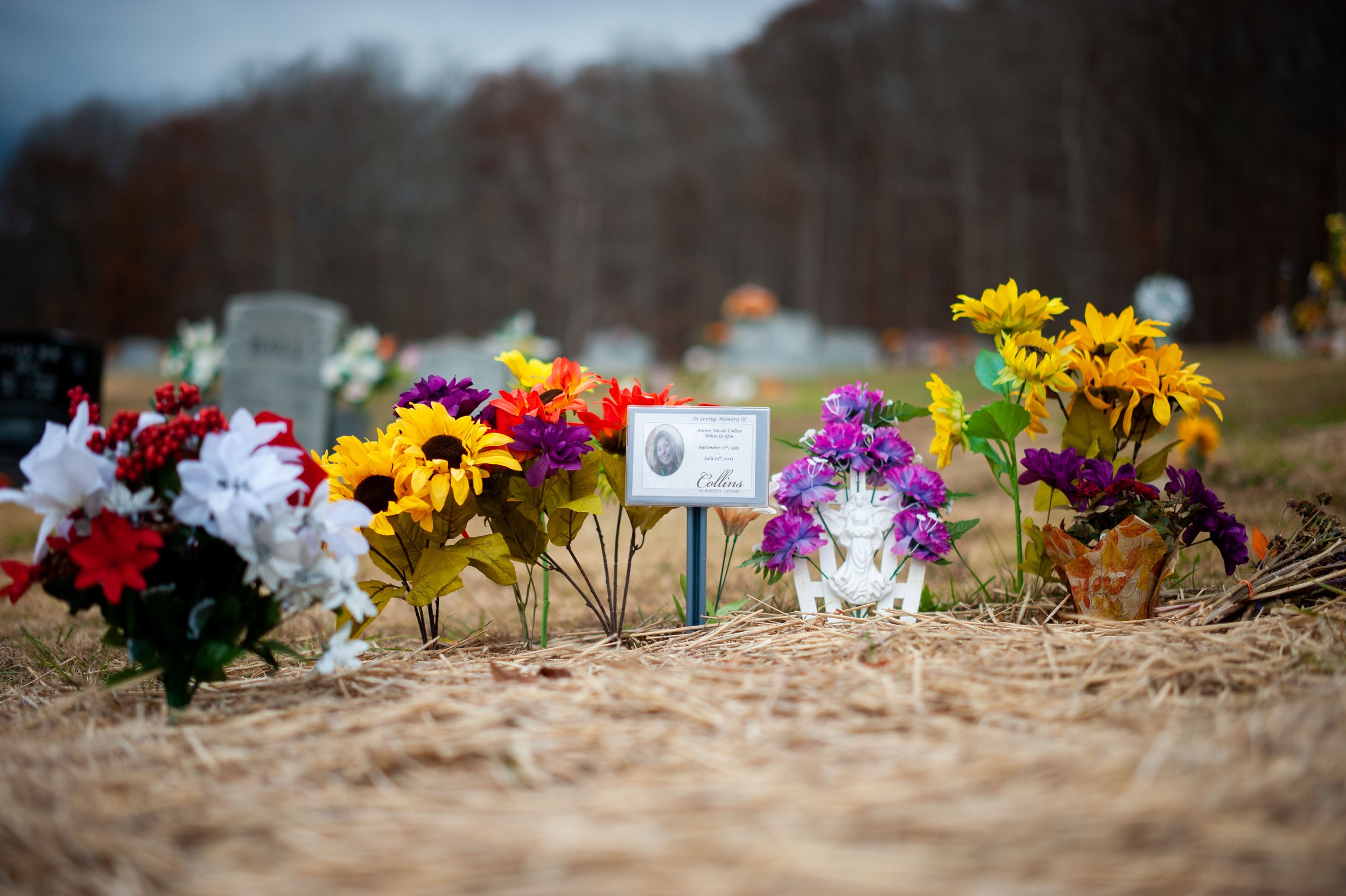Overdose deaths for W.Va. jails remain unreported for 2021
A nationwide survey of 45 states showed by 2019, West Virginia was leading the nation for fatal overdoses in jails. Two months after that report was released, the state stopped reporting overdose deaths to the public.
Nov. 23, 2021 • Written by Kyle Vass
LOGAN, W.Va. (Dragline)—A few months ago, Amber Collins decided to start tackling her opioid addiction. She went to a doctor and got on Suboxone––a medicine that helped her with cravings and blocked the receptors in her brain that respond to opioids.
“I know cause I would take her to the doctor,” her brother Checko Collins said in an interview. “Honestly, I couldn’t believe how good she was doing.”
According to Checko’s partner, Shelly Collins, Amber had successfully gone several months without using an opioid. Shelly, who’s been a friend of Amber’s since childhood, said her best friend had recently started to turn her life around.
“She spent a couple years in prison and missed out on a lot,” Shelly said. “When she finally got out, she stopped running around all the time. She started spending a lot more time at home with her family.“
But Amber was on probation which meant random drug screenings. If any non-prescription drugs were found in her system, she’d go right back to jail.
One night, she went out with some friends and crashed on her friend’s couch. “The next morning, her probation officer went over to [her friend’s] house and woke her up,” Checko said. One of Amber’s screenings had come back positive for cocaine.
“They called in a female officer to strip search her. She told them ‘I don’t have any drugs on me.’ And the officer told her, ‘Well, we’ll see about that.’” Checko said the police didn’t find any drugs on her.
Amber was taken to Southwestern Regional just outside of Logan, West Virginia where, according to Checko, she was denied access to her Suboxone prescription. Ten days later, without the opioid blockers in her system she had grown accustomed to, Amber overdosed in jail and died.
Amber Collins died in state custody on July 23, 2021 in Logan County, W.Va.
Amber’s death is part of a disturbing trend of people dying from drug overdose while in state custody. According to a log maintained by the West Virginia Department of Corrections and Rehabilitation that shows details about deaths in state custody, there were 20 people from 2019 to 2020 who died from overdoses in the state’s regional jails. Sixteen out of these 20 fatal overdoses happened to people within the first two weeks of being put in jail.
West Virginia’s jails became the focus of international attention in 2020 when Reuters came out with a report on deaths in American jails. The report showed that of the 46 states and territories surveyed, West Virginia led the nation in jail deaths per capita.
Responding to the report, two state lawmakers, Delegate Danielle Walker and Delegate Cody Thompson, proposed legislation aimed at reducing jail deaths. One of these bills proposed allowing newly incarcerated people access to medicine they were already prescribed--people like Amber. But, the bill failed to make it out of committee in the 2021 Legislative Session.
“If she would’ve had her Suboxone, Amber would still be here today,” Shelly said.
Officially, WV DCR has yet to confirm that Amber Collins died of an overdose, though Dragline was able to independently verify details surrounding the deaths of multiple people in state custody who had overdosed shortly before being pronounced dead.
In January of this year, two months after the Reuters report was published, WV DCR stopped including overdose as a cause of death in its log of deaths in state custody. All other causes of death this year however (disease, suicide and homicide) have been reported or confirmed by the state.
Aside from confirmed deaths, 17 other deaths this year, including Amber Collins’, have so far been listed as “pending/unknown.” The first of these “pending/unknown” deaths dates back to January 13 at Northern Regional Jail.
According to a call placed from the jail around 11am to Marshall County 911, employees at the jail administered Narcan to a man they had earlier observed “going through withdrawal pretty bad.” The man had only been in jail for two days and was being held there while waiting for his trial date. Medical staff tried to reverse his overdose, but he was pronounced dead later that day.
As for Amber Collins, multiple women said they watched in horror as she began to overdose. According to witnesses, at least two women rang their respective emergency alarms, but they said staff at Southwestern Regional Jail took at least 30 minutes to respond before administering Narcan to what appeared to be her lifeless body.
Shelly Collins (left) and Checko Collins (right) visit Amber Collins’ grave in Logan, W.Va. on November 21, 2021.
Checko said he can’t blame anyone else but his sister for taking the drugs that killed her that night. But, he doesn’t think it’s fair the staff failed to keep his sister safe. “I don’t know if it was the guards or the inmates that brought it in. But, either way, if you can’t keep it out of the jails then your system is broken.”
Tim Bowen, former superintendent at North Central Regional Jail, agrees with Checko. “I sit back and shake my head when I review some of these cases and say, ‘Wow. That could’ve been prevented. You should’ve had staff watching and ready to respond.’”
As for how drugs are getting into jails, multiple court cases show WV DCR employees have played a role in smuggling and selling contraband over the past few years. But, in an interview Bowen said inadequate training for WV DCR on how to use the latest technology to detect drugs at intake is also contributing to the problem.
Bowen recalled a training session for body scanners from when he was still working as a superintendent in 2017. “They crammed 30 people into a 10’ by 14’ room and only trained them for half an hour on how to use that machine. People go to school for years to read X-rays. You’re going to give an officer who probably has a high school diploma half an hour worth of training on it? It doesn’t make any sense.”
With the prevalence of drugs in state jails, Shelly said taking incarcerated people off of their medication for substance use disorder is dangerous and cruel. “Anything to help you escape mentally—to put you somewhere else other than that dark, damp jail and you’re going to take it.”
According to formerly incarcerated people and jail staff interviewed for this story, multiple people have been denied access to their prescribed medication for opioid use disorder in regional jails across the state.
When reached for comment, a spokesperson for WV DCR said that all prescriptions that can be verified and are determined to be “medically necessary” are honored in state correctional facilities. A Freedom of Information request has been made by with the agency by Dragline to determine exact policies and procedures medical staff follow in making such a determination.
As for why no overdose deaths have been confirmed in state jails for the past eleven months, the spokesperson responded, “‘Pending’ signifies just that; manner and causes have yet to be established or confirmed. It is therefore premature to speculate or guess in those cases.” When asked if it takes WV DCR longer to confirm overdose as a cause of death compared to other causes however, the agency’s spokesperson said no.



